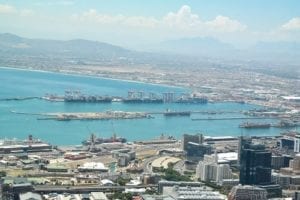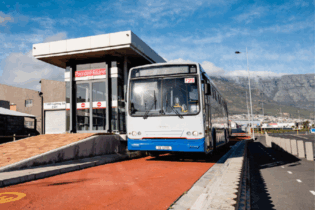While my work with Trademark East Africa has been intense, and connectivity and communication on my travels have been hampered tremendously by poor signal, FESARTA’s work continues unabated.
The custodians of USAID – the lead US government agency working to end extreme global poverty and enable resilient, democratic societies to realise their potential – is set to change, with the role currently under tender process. Several large corporates are tendering for the position, including UK consulting giant Deloitte. FESARTA will be working closely with whichever company is selected, with the decision due to be made this month and the commencement of custodianship set to begin on 1 April this year. Potential Trucker’s ForumPlans are still very much under way for another Trucker’s Forum, which would likely be held in September 2017 in Johannesburg. The inaugural event, back in 2012, was a tremendous success and the idea, now, is to expand the event to become a major pan-African transport and logistics showpiece, with the expertise of international event organisers Messe Frankfurt. More information on this event will follow in due course. For some time, we’ve been working closely with William Petty, who leads the International Transport Union’s (IRU) work in Africa. He recently highlighted the importance of implementing harmonised professional standards and training in the road transport sector in order to drive up efficiency and safety, at a workshop in Nairobi, Kenya. Organised by the World Bank’s Sub-Saharan Africa Transport Policy Program (SSATP) and co-hosted by the Northern Corridor Transit and Transport Coordination Authority (NCTTCA), the workshop contributed to the design of the SSATP’s next four-year programme, titled ‘Regional Integration, Connectivity and Cohesion Policies’. During the event, the IRU highlighted that trade and transport facilitation can often be boosted by simply implementing existing instruments, like the UN TIR Convention, which could help to simplify and reduce the costs of moving goods in transit and across borders.
Conventional transport corridors
Implementing the tried and tested UN TIR Convention would boost trade by eliminating a range of processes and costs along the Northern Corridor, while providing customs administrations with a cast-iron guarantee on the duties owing on the goods.
The IRU Academy, in particular through the development of a network of IRU-accredited training institutes, was also showcased as a valuable tool for increasing driver and operator professionalism and ensuring harmonised standards. The IRU has also been invited by Donat Bagula, executive secretary of the NCTTCA, to participate in a workshop aimed at taking a strategic look at corridor performance and validating the 7th edition of their ‘Transport Observatory Report’. The report compiles data on 31 different performance indicators covering road, rail, pipeline, port capacity, efficiency, transit times, delays, and costs. It is a vital tool that provides corridor decision-makers with the necessary evidence to continuously improve trade facilitation performance. Mike Fitzmaurice






